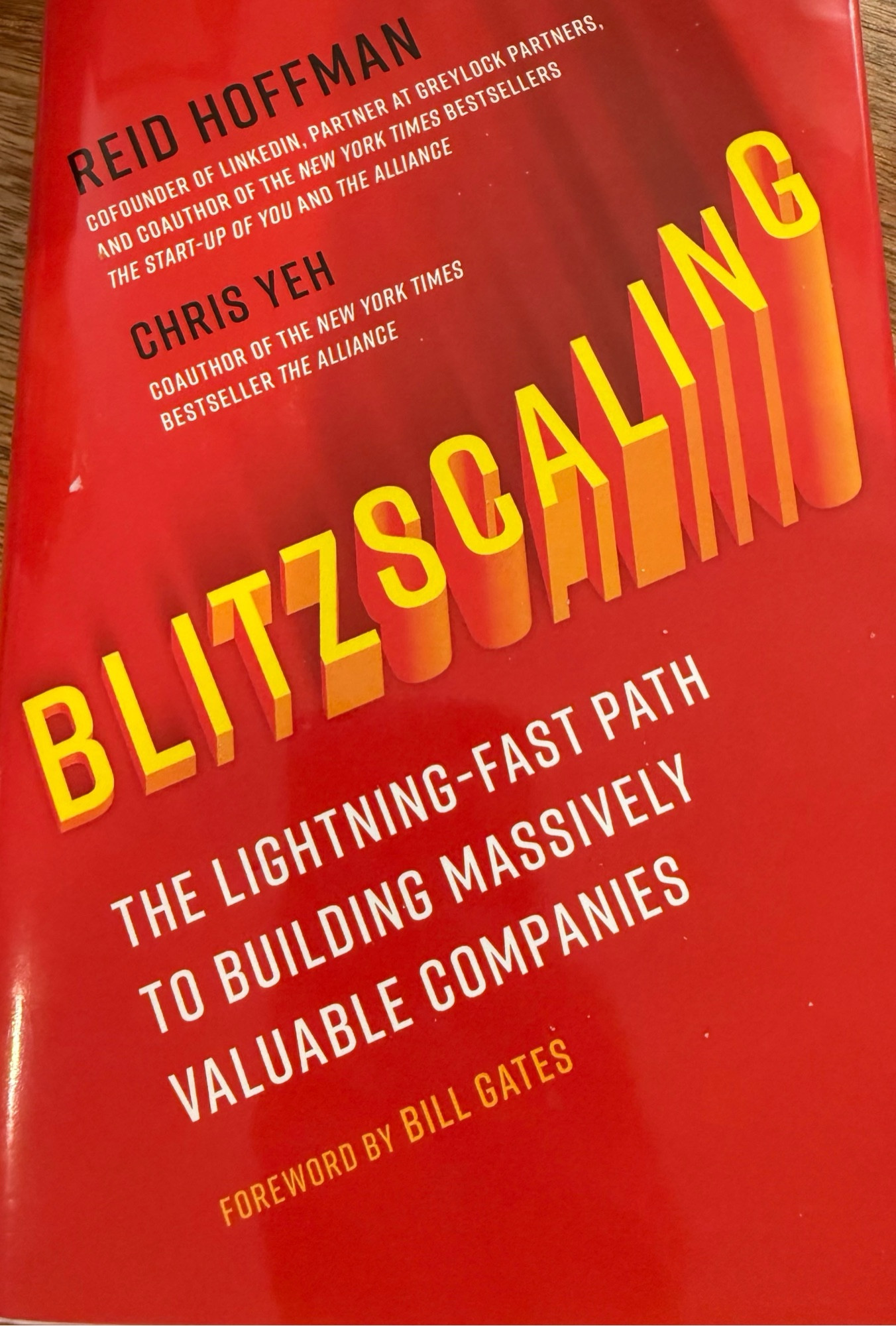I’m now reading Reid Hoffman’s book, “blitzscaling.”
My general impression is that Silicon Valley’s obsession with “get big fast,” prioritizing fakeable growth metrics over actual product quality, is a big part of what has ruined tech.
I suspect I will not like this book.
My general impression is that Silicon Valley’s obsession with “get big fast,” prioritizing fakeable growth metrics over actual product quality, is a big part of what has ruined tech.
I suspect I will not like this book.

Comments
https://en.wikipedia.org/wiki/Built_to_Last:_Successful_Habits_of_Visionary_Companies
Now SaaS subscription models? abolishment of CFPB?
Products suck
Shit, you don't have to look too far back: When Skype first came out, I chatted with my wife in CA while on business in Germany. Crisp sound and video; little delay. When MSFT bought them, enshitification began immediately.
The use of ‘growth’ as a primary economic metric (from GDP to company revenue) has never been something sustainable. It’s a shared economic delusion.
https://bsky.app/profile/davekarpf.bsky.social/post/3loc3tuq2ck2f
A. Remember when Linkedin crawled gmail contacts and spammed everyone. They did super fishy things to grow and the idea that "blitzscaling" is repeatable is absolutely ridiculous.
B. He lies on TV about open source
I’ve got a chapter on blitzscaling in my book project. Wanted to read the longer version of their argument before I start revisions.
1. Once you grab enough market share, people will forgive anything due to perceived dependency, so grab it ASAP.
2. Changing your cost items into perceived growth measurements fools investors into giving you their money.
https://www.wheresyoured.at/the-rot-economy/
It's called Final-Solution-Scaling
Foreword by Elon Musk.
Of value to who?
You making a lot of money or society benefiting from your brilliant idea.
You can achieve both, but never by making the former your purpose for creation.
(Paraphrasing) “The classic approach to business strategy is to take calculated risks after you have a clue what you’re doing. But look at these huge startups that took wild risks and worked out!”
Survivorship bias as business wisdom. Got it.
1. his dad was one of Prince Phillip's private secretaries
2. the shortest guy in their Olympic 8+ was 6'2"
https://bsky.app/profile/jessicacalarco.bsky.social/post/3kx63gtwxfk2o
Paging @niedermeyer.online. How many years has it been since Tesla updated the product line?
https://youtu.be/p7Lo0sZfdHE
The problem is they were wildly off predicting software progress. FSD has gotten further with finding challenges than solving them.
Resulting in production that is both slower, and more error prone than the standard, and hilariously bad fit and finish on the cars.
Silicon Valley wisdom never fails to reinforce how ferociously mid their minds are
electric car that can charge off solar a potential life saver is also the time that your OTA system is most likely to fail. If an update is in progress when the SERVER has a failure, every car in the fleet is simultaneously taken offline.
This book is only seven years old. How is it already so painfully dated?
* Already was a thing
* Is being shoved down everyone's throat with very little benefit other than specific niches
* Fizzled out
* Both already was a thing AND had already fizzled out
* Absolute nonsense that ended up with the world's most dangerous kiddy car ride
This passage is like the butterfly meme. Reid Hoffman looks at any successful product launch and says “is this blitzscaling?”
KKKrapatalists love to pull that trick.
Once a startup is showing blitz scale growth, it is both overly reliant on more VC capital infusions AND the tight-knit VC community stops backing competing firms.
This locks in paydays for early investors, but is deeply anticompetitive.
GenAI definitely has a lock on this type of text.
It would be interesting to understand *why* that happened, but a VC may not be the right guy to write such a book.
They were offered like a billion dollars to sell their company. They countered, asking for $2 billion.
Buyer said, $1.5, but you have to open your books."
Days later, the offer was revised to $100 million.
They were written about in a bunch of tech magazines and in Wired.
They were cutting edge at the time.
I don't remember the name, and I shouldn't be more specific, because I'm bound by both confidentiality, and a desire not to get doxed
https://libgen.is/search.php?req=blitzscaling&open=0&res=25&view=simple&phrase=1&column=def
1. Bet on 10 companies. Give them money and draconian deadlines and goals.
2. Pay no heed for how they "get there"
3. If 1 of those 10 companies make it, profit
No care for workers or ideas
Now ruining government.
I couldn't even type that with a straight face.
How often have you stretched to buy something with big promises attached, only to be disappointed and broke.
I love computers and I love programming and I'm really hating the tech industry right now.
How is it not a ponzi scheme: these corps. are not financially viable, survive by spending VC's money, and get traded on the speculation of future appreciation... Lyft is not profitable yet; Uber just was, and it will take long to repay the investment, assuming it survives
Given recent developments it is a definite Nazi reference.
Agile all the things.
Cloud all the things.
AI all the things.
I try to position the "yes" answer behind fundamentals as price of admissions. When we have a knowledge program up and running, you can slap an LLM on it. Deal!?